Heart failure is considered one of the greatest challenges of modern medicine. Estimates show that the number of patients worldwide, as well as in Serbia, is constantly increasing. Data reveal that more than 120,000 people in our country suffer from this disease, and that the number continues to rise each year.
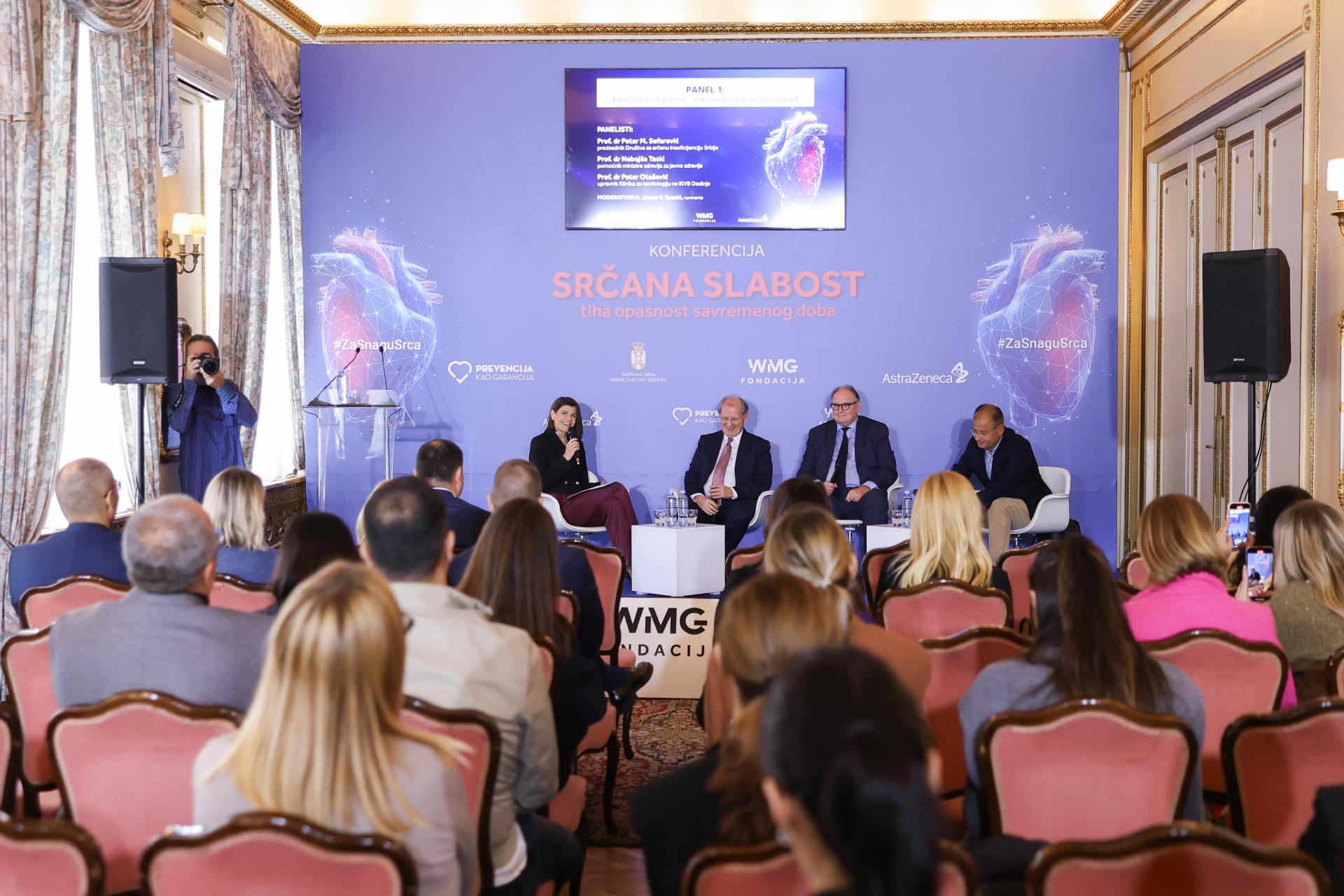
The fact that patients often do not recognise the first symptoms is of particular concern to experts, since these symptoms usually appear only once the disease has progressed. For that reason, they warn that raising awareness and early detection are key to reducing mortality and improving the quality of life of those affected.
These were precisely the topics addressed by the conference “Heart Failure – The Silent Danger of the Modern Age”, which brought together leading cardiologists, other healthcare professionals and the pharmaceutical sector, with the aim of highlighting the importance of timely diagnosis, available therapies and better patient care in Serbia.
Health is a topic for society as a whole to address
At the opening of the event, the participants and guests were addressed by Irena Petrović, Director of the WMG Foundation, while the conference was officially opened by Professor Zlatibor Lončar, Minister of Health in the Government of the Republic of Serbia, and H.E. Edward Ferguson, Ambassador of the United Kingdom to Serbia and Montenegro.
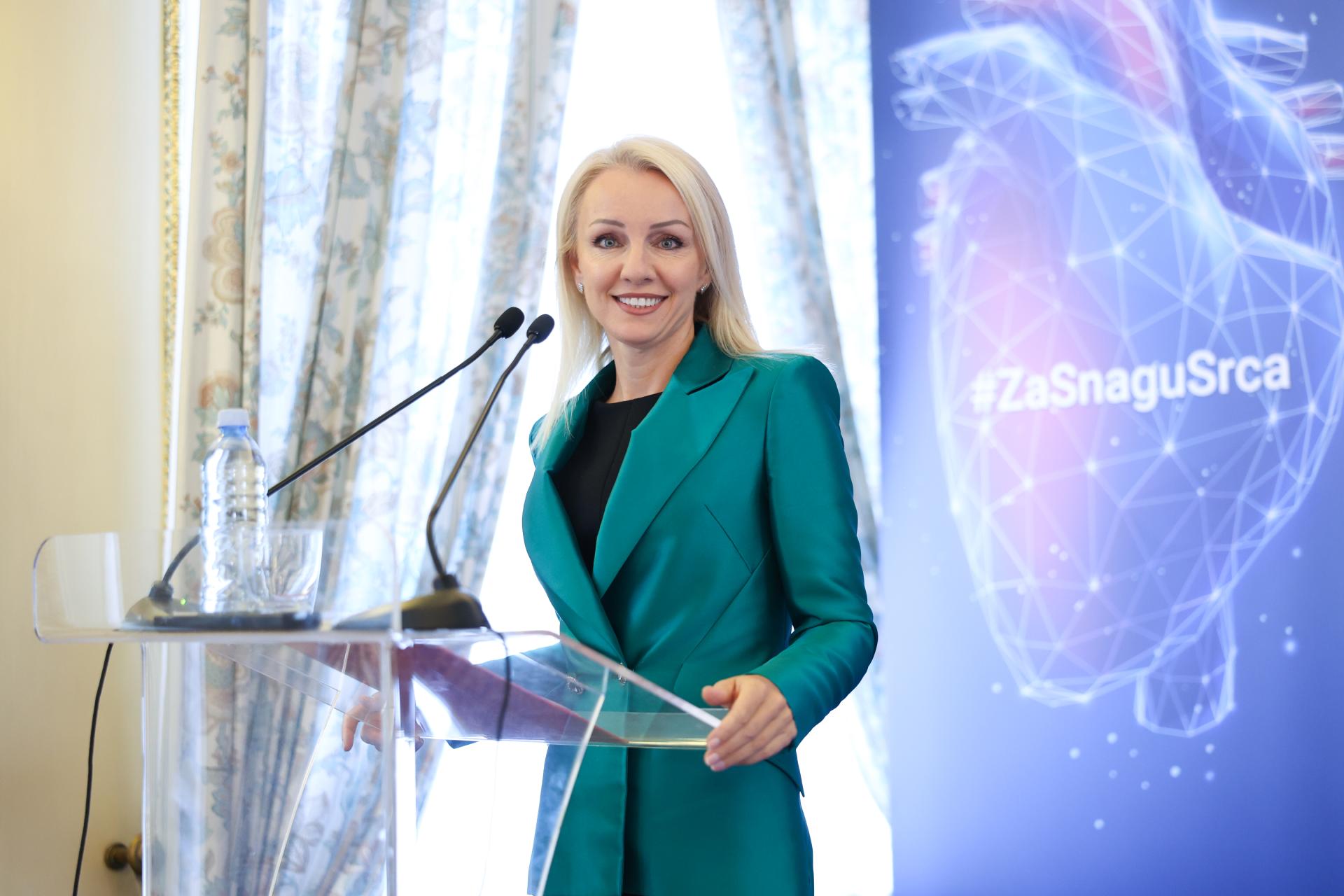
In her introductory address, the Director of the WMG Foundation, Irena Petrović, said she wished to remind participants that health is a topic that should concern not only doctors but all of us together.
“For that very reason, almost two years ago we launched the project Prevention as a Guarantee, within which today’s conference is being held. It is a platform that enables us to work together to raise awareness of the importance of preventive healthcare and to improve public health. I would like to take this opportunity to thank AstraZeneca and the Ministry of Health of the Republic of Serbia, who recognized the importance of this initiative and have supported us from the very beginning. The theme of today’s conference, ‘Heart Failure – The Silent Danger of the Modern Age’, is extremely important. This is a topic about which much more needs to be known, and that is precisely why we have gathered here today renowned experts who will speak about the importance of education, prevention and the application of modern therapeutic options. I believe that we can look forward to an engaging discussion, and that today’s conference will contribute not only to raising awareness about the importance of prevention but also to improving existing practices,” added Irena Petrović, Director of the WMG Foundation.
Professor Zlatibor Lončar, Minister of Health in the Government of the Republic of Serbia, stated in his address that dialogue is very important and that it is the basis for achieving results: “Today we have here the Ambassador of the United Kingdom, representatives of the academia, university professors – which shows that dialogue works, and that it will produce results.
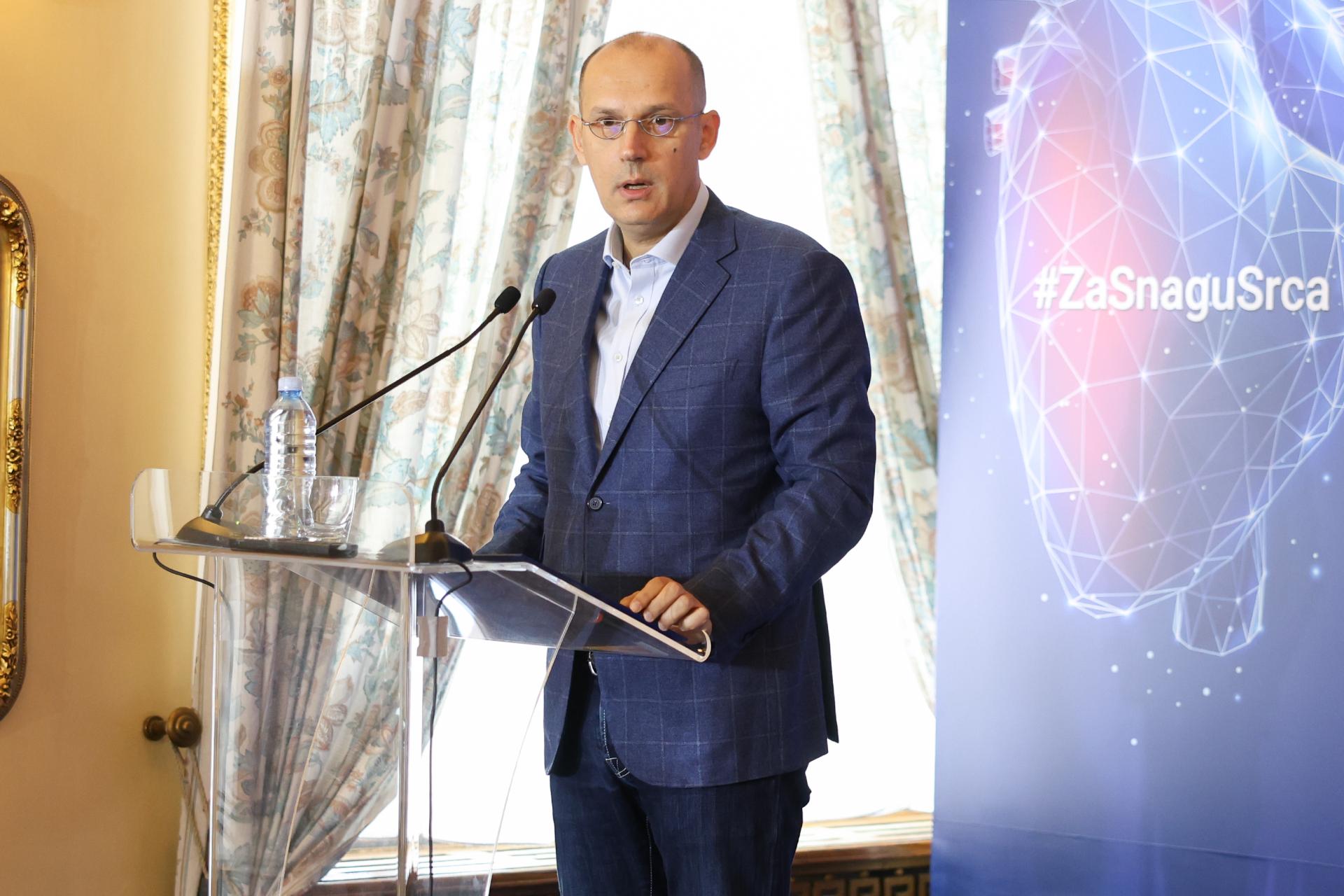
“In recent years, significant progress has been made in the diagnosis and treatment of heart failure – in drug production, mechanical support and heart transplantation, which have greatly prolonged and improved patients’ lives. With the introduction of modern biomarkers for diagnosing heart failure, as well as advanced imaging methods throughout the Republic of Serbia, diagnostics of this disease have been considerably improved,” he added, concluding that all plans, programmes and ongoing activities of the Ministry of Health are directed towards the citizens, because they are the priority.
The Ambassador of the United Kingdom to Serbia and Montenegro, H.E. Edward Ferguson, once again emphasized that cardiovascular diseases are the leading cause of death globally, have the worst prognosis, and should have far more space in the media.
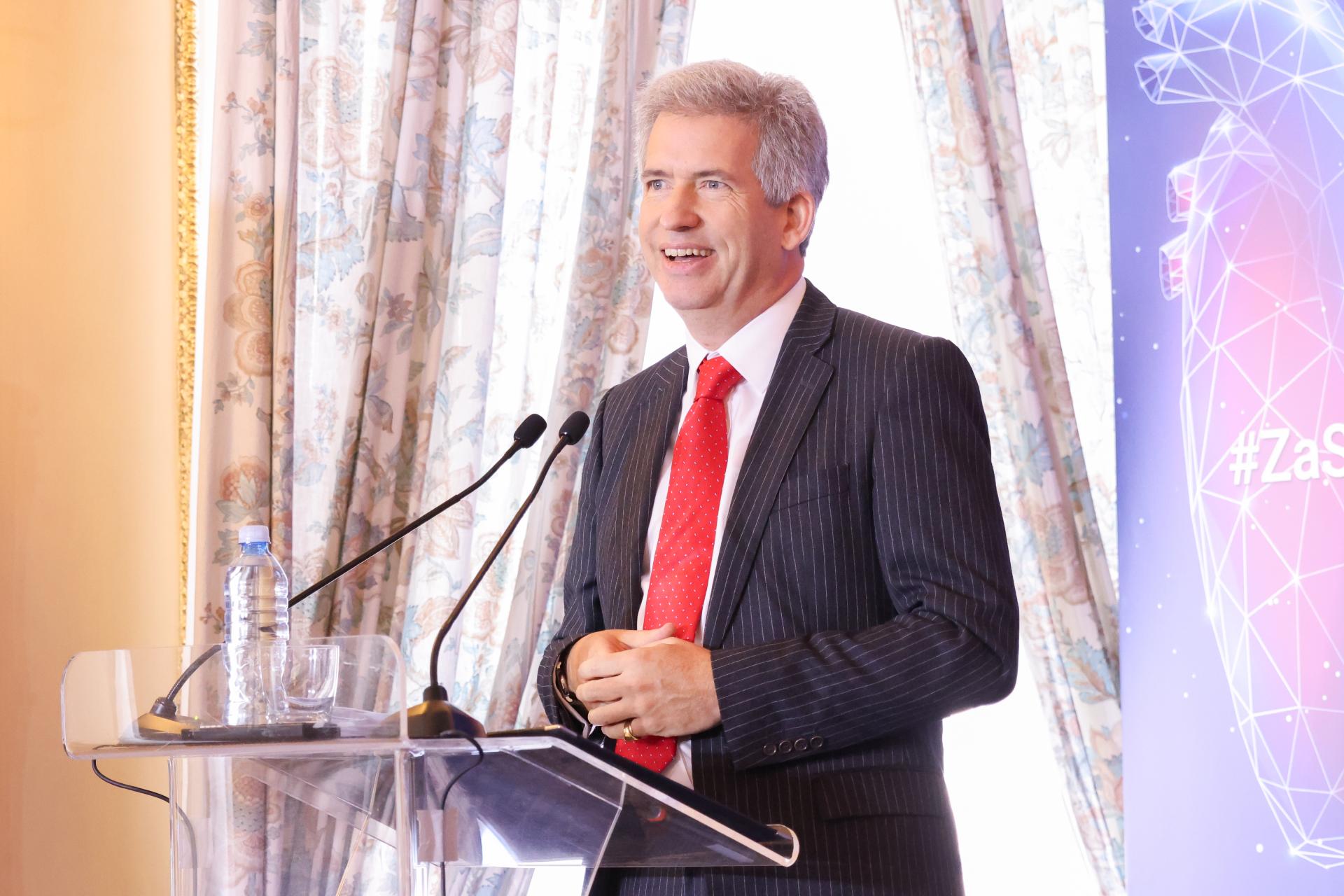
“I would like to congratulate Serbia and the cardiology community on hosting the European Congress on Heart Failure in Belgrade in May this year. It was an important recognition of your work and a clear signal that you are valued members of the international cardiology community, standing shoulder to shoulder with colleagues from the United Kingdom, Europe and across the world,” he said.
Education and raising awareness
The first panel, entitled “When the Heart Calls for Help – How to Recognise Heart Failure”, shed light on the importance of early detection of the disease, particularly in primary healthcare.
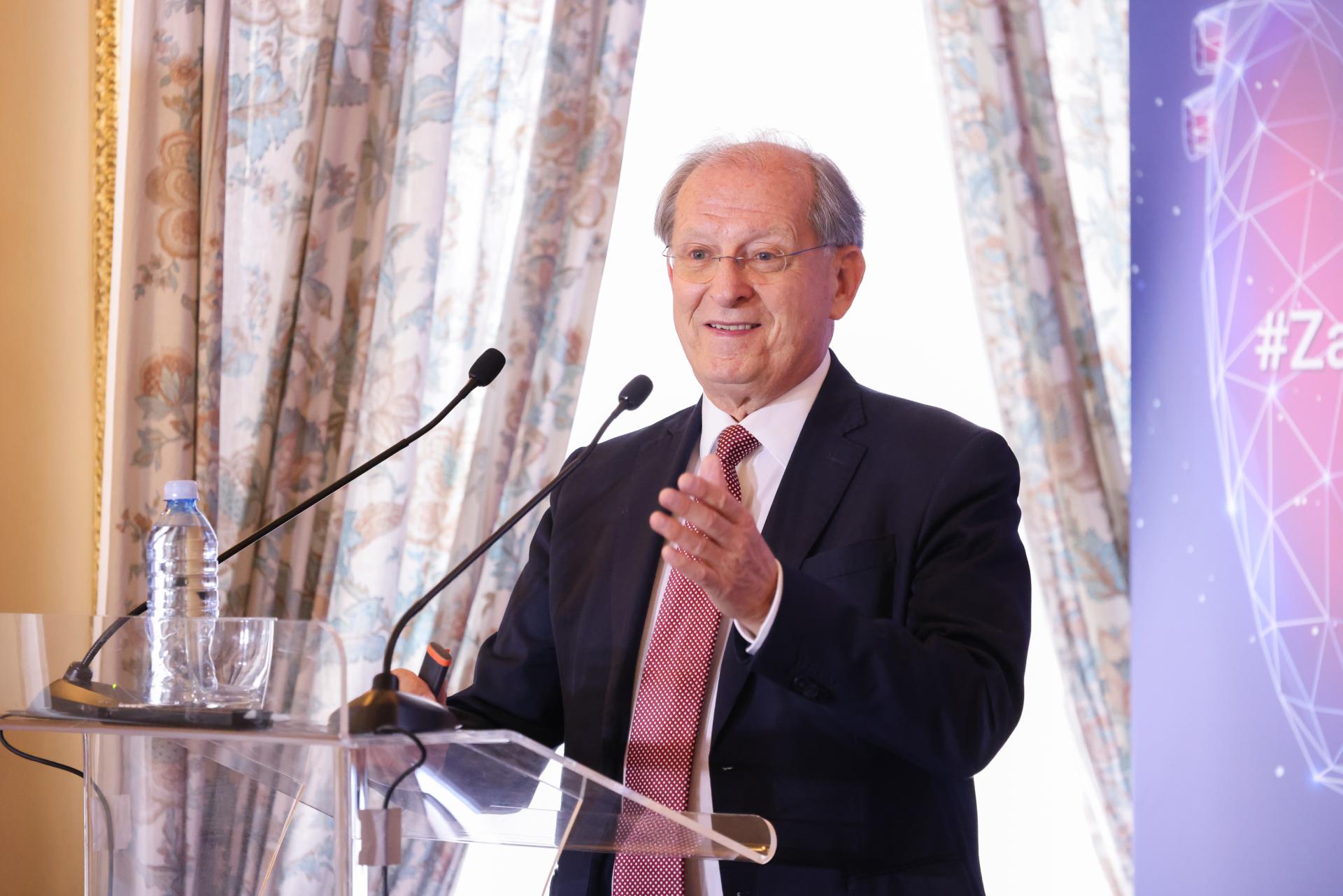
The panels were moderated by Jelena S. Spasić, journalist at Kurir, who has been covering health topics for many years. Responding to Jelena’s questions, Professor Nebojša Tasić said that heart failure does not develop suddenly but over decades: “What the state has done in the past nine months, on the initiative of Minister Lončar, when education among healthy citizens was launched – we have visited more than 45 municipalities and held educational forums where we spoke with younger populations. The goal is to educate the public and carry out check-ups. Europe is doing something similar, but they launched their project after us.”
Professor Petar Otašević said that patients do not come to see a doctor because of heart failure by chance, but due to poor tolerance to exertion: “The message is that as soon as you feel symptoms, you should contact your GP, and then your cardiologist. There is a common misconception that young people cannot fall ill, but it is important to go for a check-up as early as possible.”
Professor Petar M. Seferović stated that the cultural attitude of our people is very significant and that the key is for panels to focus on prevention and personal responsibility for one’s own health.
Participants Professor Petar M. Seferović, Professor Nebojša Tasić and Professor Petar Otašević agreed that a sensible degree of caution is advisable – with regular medical check-ups and early recognition of heart failure by doctors, combined with consistent use of modern therapy, the prognosis for disease control and the quality of life of the patient are favourable. On the other hand, it is the state’s responsibility to monitor global trends and introduce modern therapies at the expense of the National Health Insurance Fund.
Opportunities are great if the patient arrives on time
The focus of the second panel was on the system of patient support – from the moment of diagnosis, through access to modern therapies, to long-term healthcare.
Professor Marija Zdravković explained that above all, the most important thing is to talk to and listen to the patient when they come into the surgery: “When there is shortness of breath, swelling of the legs and easy fatigue, that is an immediate alarm for doctors. We then follow our protocol – today, we have the possibility of establishing a diagnosis from just a single drop of blood, as we say, and then referring the patient for an echocardiogram.”
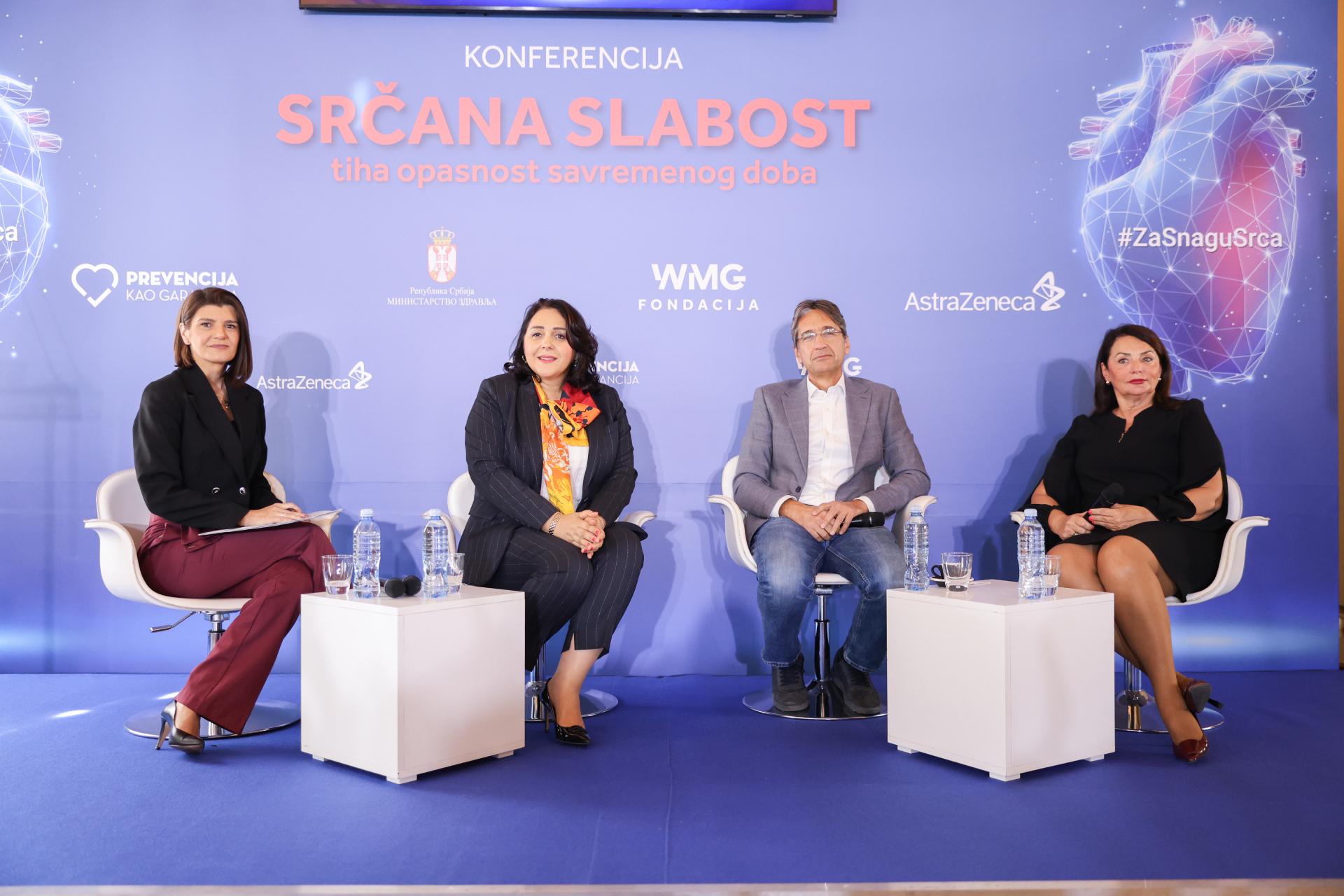
“You must start everything on time – both the diagnosis and therapy – to avoid reaching a stage where no medical procedure can help. When the function of the heart is taken over by mechanical support and you are waiting for a transplant – if the patient lives that long,” explained Professor Svetozar Putnik.
Professor Svetlana Apostolović explained that regardless of the diagnostic procedure, doctors must know the cause and the stage of disease progression: “We divide therapy into symptomatic – to help patients with their symptoms – and in addition we have four pillars of therapy. These should be introduced immediately, in the maximum tolerable dose, and the patient’s condition should be checked after one month. Today there are drugs that can prevent heart failure from leading to progressive kidney failure, such as SGLT2 inhibitors, which are also used in patients with diabetes or hypertension to prevent cardiovascular disease. That is why it is of crucial importance that they be available to all citizens of Serbia, regardless of their financial status.”
Participants agreed that education is essential, as is a call for a ban on smoking which abroad has yielded enormous results, along with the introduction of new measures such as lipid status testing from an earlier age. What we can do for ourselves is to preserve our hearts through a healthy lifestyle.